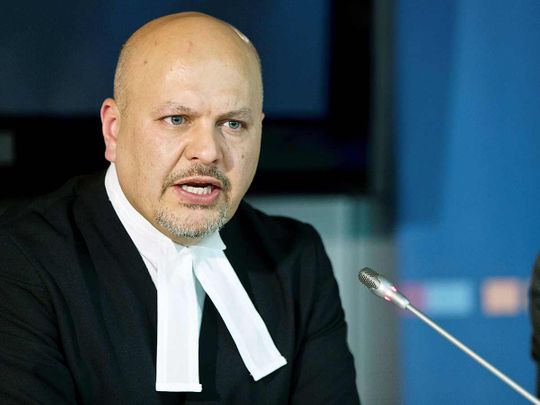
International Criminal Court (ICC) is once again in the eye of a political storm, facing intense pressure from a bipartisan group of US senators to delay or halt the issuing of arrest warrant for Israeli Prime Minister Benjamin Netanyahu and the recently dismissed Defense Minister Yoav Gallant.
This situation highlights the complex interplay between international law, humanitarian crises, diplomatic maneuvers, and US domestic politics. By tying their request to allegations of harassment against ICC chief prosecutor Karim Khan, these senators amplify long-standing US pressure on the ICC and expose the vulnerabilities of the institution.
The senators’ letter, penned by Lindsey Graham (Republican), Ben Cardin (Democrat), Joni Ernst (Republican), Richard Blumenthal (Democrat), John Thune (Republican), and John Fetterman (Democrat), calls for an investigation into the harassment allegations against Khan before moving forward with decisions on arrest warrants.
While this is framed as a due-process concern within the ICC, it can be easily seen as an attempt to shield Israeli leaders from international legal scrutiny, effectively granting them a “free hand” in their ongoing Gaza operations. Human rights organisations, the International Court of Justice, and international observers have voiced concerns about potential war crimes and the severe humanitarian toll of the conflict in Gaza.
Aiming to limit ICC jurisdiction
This political shielding raises questions about the ICC’s legitimacy and independence. Founded to bring accountability for crimes against humanity, war crimes, and genocide, the ICC has repeatedly faced resistance, particularly from the United States, which has not ratified the Rome Statute.
While the ICC has pursued cases involving African leaders, its inquiries into Gaza and Afghanistan have faced significant backlash from the US and Israel. These governments view the ICC’s investigations as politically biased and question its jurisdictional authority, a stance reinforced by US legislative moves, like the American Service-Members’ Protection Act, which aims to limit ICC jurisdiction over US personnel.
The politicisation of the ICC is not new, but the recent timing of allegations against Karim Khan has raised further concerns. Shortly after his office requested arrest warrants for Netanyahu and Gallant, misconduct allegations against Khan surfaced, casting doubt on the investigation’s legitimacy.
Khan denies these accusations, calling them part of a smear campaign, but the senators’ intervention has intensified suspicions of a coordinated effort to disrupt the ICC’s Gaza investigation. Such actions may set a dangerous precedent, where powerful nations influence the court’s actions, thereby eroding its perceived impartiality and weakening its role in international justice.
Principle of international accountability
In addition, reports of Israel’s covert actions to sway ICC decisions add another layer to the court’s Gaza investigation. Investigative sources allege that intelligence efforts, including surveillance and possible intimidation of ICC officials like former prosecutor Fatou Bensouda, sought to deter the court from scrutinising Israeli policies.
These tactics reflect the lengths some governments will go to in order to avoid legal accountability. Undoubtedly such actions undermine the foundations of international law and cast doubt on the ICC’s effectiveness, especially when faced with resistance from influential states.
The US stance toward the ICC’s investigation into Gaza also exposes a striking double standard. While Washington has staunchly supported ICC investigations into alleged Russian war crimes in Ukraine, it resists similar ICC actions involving Israel.
This inconsistency reinforces perceptions that the West only backs the ICC when it aligns with their interests. Such selective support not only weakens the court’s standing but also hampers its ability to pursue justice impartially across political divides.
The ICC took over five months to review arrest warrant requests for Netanyahu and Gallant, a stark contrast to the 24 days it took to issue a warrant for President Putin. The Gaza investigation is a critical test for the ICC’s resilience against political interference.
What’s at stake is not only the court’s credibility but also the broader principle of international accountability. Pressure from US legislators risks encouraging leaders worldwide to treat international law as a tool to be used selectively, prioritising political considerations over justice.
The senators’ letter further strains the already tense relationship between the US and the ICC. Recently, the US House of Representatives passed legislation to sanction the ICC over its Gaza investigation, with similar sanctions proposals pending in the Senate.
The new Republican-majority Senate is unlikely to hesitate in passing these measures. Such actions may also deter other states from cooperating with the ICC, particularly in cases implicating powerful nations and their allies. The outcome of this standoff will not only impact the ICC’s credibility but also influence the future of international law in an era where the world’s superpower increasingly questions the norms of accountability and the rule of law.







_resources1_16a45059ca3_small.jpg)

